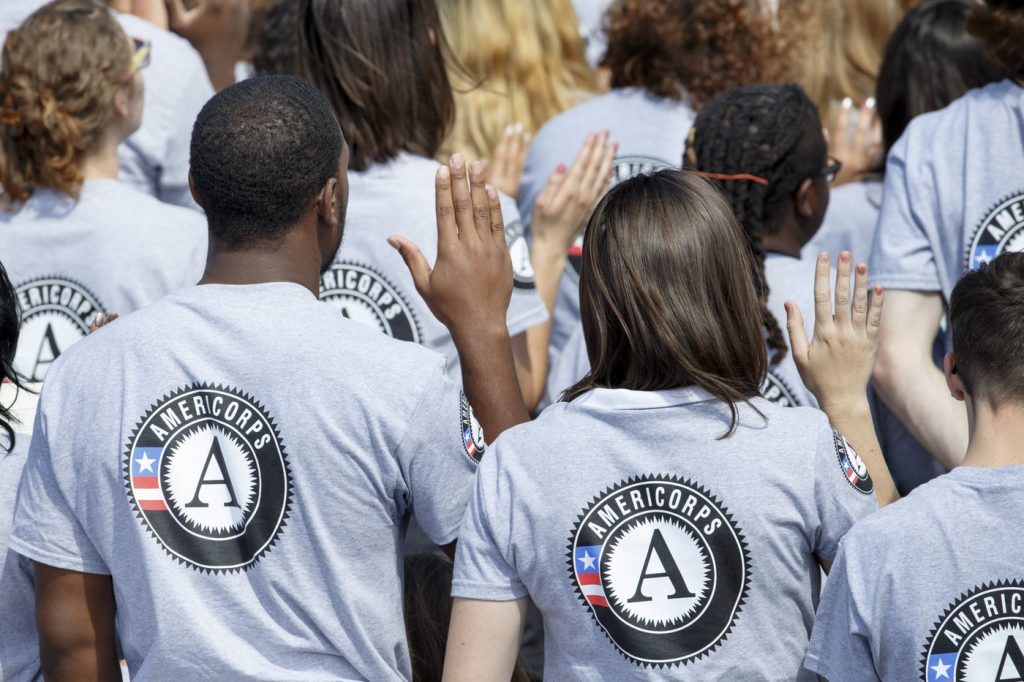DES MOINES, Iowa (AP) – A 30-year-old community service initiative, AmeriCorps National Civilian Community Corps (NCCC), has become a target of the Trump administration's efforts to reduce government spending. Volunteers received a notification indicating that they would be exiting the program early due to circumstances beyond their control. This was shared via an email that was subsequently obtained by the Associated Press.
The memo sent to corps members stated that NCCC's operations have been negatively affected by the Trump administration’s policy decisions and President Trump’s executive order that established the Department of Government Efficiency. Consequently, members are scheduled to be officially dismissed by April 30.
AmeriCorps, which plays a crucial role in the NCCC's functioning, has not provided any comments regarding the situation following the email communication, prompting concerns among volunteers and stakeholders.
AmeriCorps NCCC, which celebrated its 30th anniversary in the previous year, employs over 2,000 young adults aged between 18 and 26, who engage in approximately ten months of service. These corps members undertake various projects focused on education, housing, urban and rural development, land conservation, and disaster relief, frequently traveling across the United States to fulfill their assignments. The program covers volunteers’ essential expenses, including housing, meals, limited health benefits, and a modest living allowance. Moreover, upon completing a 1,700-hour service term, members can receive education funding worth about $7,300 for future academic pursuits or loan applications.
However, funding for AmeriCorps and NCCC has faced continuous scrutiny during budget discussions in Congress. Reports indicate that NCCC's budget was approximately $38 million in the last fiscal year. A White House official, speaking anonymously, indicated that the administration has cast doubts on the appropriateness of using taxpayer money for the program.
In terms of volunteer work, traditional NCCC participants collaborated with a variety of sponsors, including community and faith-based organizations, nonprofits, educational institutions, cities, and tribes. Recent service projects featured contributions at food banks in Washington state, home constructions with Habitat for Humanity in North Carolina, and the facilitation of after-school programs in Arizona. Additionally, AmeriCorps NCCC has partnered with the Federal Emergency Management Agency (FEMA) and the U.S. Forest Service, where volunteers have responded to severe incidents such as tornadoes, flooding, hurricanes, and wildfires across states, emphasizing the critical role of volunteers during natural disasters.
The unexpected announcement prompted immediate action from young corps members, who were instructed to pack up and begin their journeys back to various campuses located in places like Vicksburg, Mississippi; Vinton, Iowa; Sacramento, California; and Aurora, Colorado. They would continue to receive their regular allowance and health coverage until the end of April, according to the memo. Members who had completed at least 15% of their service term would qualify for a prorated education award.
Concerns expressed by former NCCC director Kate Raftery underline the uncertainty faced by corps members, who often view the program as a significant stepping stone for their education and career advancement. Raftery highlighted that many participants, referred to as the “unusual suspects,” were individuals seeking avenues to enhance their life skills and engage in community service, rather than those who had previously aimed to serve in such roles.










